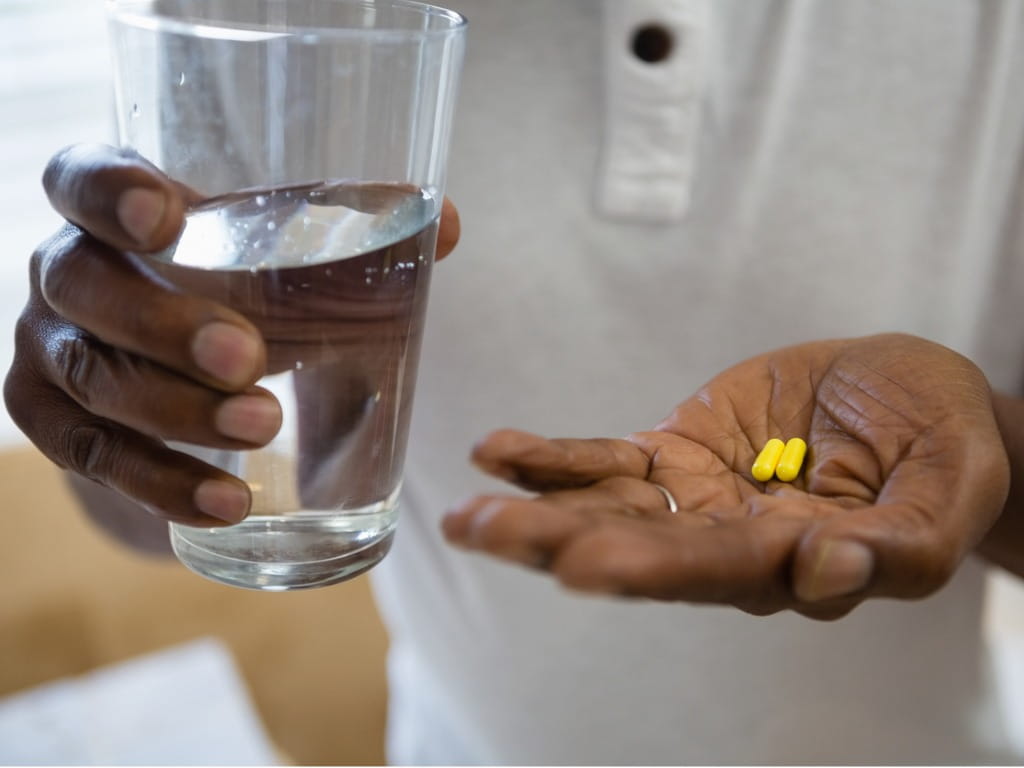What are the benefits of berberine?

The Bottom Line
Berberine is a natural chemical found in certain plants, including goldenseal. Berberine is sometimes described as “Nature’s Ozempic” because of its reported beneficial effects on metabolism and blood sugar, but berberine is not the same as semaglutide (Ozempic). There is no standard dose of berberine, and berberine should be avoided during pregnancy and lactation.

What is berberine?
Berberine is a chemical found naturally in the root, bark, and fruit of certain plants, including goldenseal, barberry, and Oregon prape. For hundreds of years, berberine has been used as a traditional Chinese medication to treat dysentery, diarrhea, hepatitis, and other conditions. Berberine acts as an antimicrobial and may also have beneficial effects on blood sugar, metabolism, and brain health.
What is berberine used for?
Berberine affects the gut microbiome, which is increasingly recognized as an important regulator of metabolism. Based on its effects on the gut microbiome, berberine has been studied for its effects on blood sugar control, weight management, liver disease, cancer, and other health conditions. In diabetic patients, berberine may help the body use insulin more efficiently, resulting in lower blood glucose levels. The results of some studies suggest that berberine acts similarly to metformin in regulating blood sugars in diabetic individuals. Berberine’s effects on the gut microbiome may also alter the metabolism of other medications within the gastrointestinal tract, potentially enhancing their effectiveness.
What is the dosage of berberine?
Because berberine is considered a dietary supplement in the United States, it is not heavily regulated by the Food and Drug Administration (FDA) and there is no standardized dosing. In human studies, berberine has been used in doses of 100-600 mg administered orally, several times a day. In some clinical trials that involved the use of berberine in diabetic patients, study participants took berberine 500 mg, two or three times daily. However, the optimal dose of berberine for human health remains undefined.
Is berberine “Nature’s Ozempic”?
In 2023, social media posts described berberine as “Nature’s Ozempic” due to its effects on metabolism and blood sugar control. Berberine is not a natural form of semaglutide (Ozempic) and works differently in the body than semaglutide. Because of the differences between semaglutide and berberine, these products are not interchangeable, and berberine should not be used as a substitute for Ozempic.
Does berberine cause weight loss?
Berberine may have beneficial effects on weight management. In animal studies, berberine was found to promote weight loss by helping fat cells burn energy more efficiently. In some studies, berberine use was also linked to decreases in appetite, improved blood glucose metabolism, and other metabolic changes that impact weight loss.
Does berberine help with PCOS?
Polycystic ovary syndrome (PCOS) is a disease characterized by metabolic abnormalities. Since berberine may help regulate metabolism, scientists have studied its use in PCOS and other metabolic conditions. In patients with PCOS, berberine use is associated with improvements in hormone levels and insulin resistance. Berberine use may also be linked to improved ovulation in patients with PCOS, although more research on this topic is needed to determine the exact relationship between berberine and fertility.
Is it safe to take berberine during pregnancy?
Because berberine may cause an increase in uterine activity, it is not recommended for use in pregnancy. Berberine crosses the placenta and may cause harm to the developing fetus. Berberine is also transferred through human milk and should be used with caution during lactation.
Can berberine damage the liver?
Berberine may help prevent certain types of liver injury and is not frequently associated with liver damage. Berberine’s effects on metabolism may improve liver function, prevent liver inflammation, and help treat non-alcoholic fatty liver disease. In one study, when berberine was taken by individuals with non-alcoholic fatty liver disease in combination with a reduced-calorie diet and aerobic exercise, significant improvements in fatty liver tissue, body weight, and metabolism were noted. The results of this study suggested that berberine may be beneficial in the treatment of non-alcoholic fatty liver disease.
What are side effects of berberine?
Common side effects of berberine include nausea, upset stomach, diarrhea, and constipation. In addition to these gastrointestinal side effects, berberine can also cause unwanted side effects due to interactions with other medications. This is because berberine affects multiple enzyme systems within the human body that work to break down prescription and over-the-counter drugs.
What should you do if someone takes too much berberine?
If you develop unexplained or unexpected symptoms after taking berberine, get guidance from Poison Control immediately. Help from Poison Control is available at www.poison.org and by phone at 1-800-222-1222. Both options are free, confidential, and available 24 hours a day.
Kelly Johnson-Arbor, MD
Medical Toxicologist
Poison Control Media Information
Did you find this page helpful? If so, we need your support. Poison Control is in constant competition with misinformation online. Links to www.poison.org or our webPOISONCONTROL triage tool from other websites and blogs help internet searchers quickly find accurate information and Poison Control’s contact information in an emergency. If you use the content from this page, please provide attribution via a link back to this page, www.poison.org, or https://triage.webpoisoncontrol.org/#!/exclusions. By doing so, you could save a life. Thank you!
Click here for Poison Control media contact information.
Suggested page citation (APA):
Johnson-Arbor, K. (n.d.). What are the benefits of berberine?. Poison Control. https://www.poison.org/articles/berberine
Poisoned?
Call 1-800-222-1222 or
Prevention Tips
- Talk with your doctor before starting a berberine regimen for weight management, improved metabolism, or other conditions.
- Beware of social media posts that advertise berberine as a “natural” form of Ozempic.
- If you are pregnant or nursing, avoid the use of dietary supplements that contain berberine.
This Really Happened
A 68-year-old man was admitted to a hospital with jaundice (yellowing of the skin or whites of the eyes) and liver damage. He told his doctors that he had taken berberine supplements for three weeks prior to hospital admission, in addition to his regular prescription medications which included rivaroxaban (Xarelto). On laboratory evaluation, he was found to have an abnormally high blood level of rivaroxaban, which was believed to be the cause of his liver damage. His doctors believed that an interaction between berberine and rivaroxaban was the cause of the abnormally high rivaroxaban blood levels. He stopped taking berberine and was treated with intravenous fluids and other medications, and his liver damage improved over the following week (from Bonnichsen, et al, 2022).For More Information
Is berberine a safe alternative treatment for diabetes? (Nebraska Medicine)
References
Poisoned?
Call 1-800-222-1222 or
Prevention Tips
- Talk with your doctor before starting a berberine regimen for weight management, improved metabolism, or other conditions.
- Beware of social media posts that advertise berberine as a “natural” form of Ozempic.
- If you are pregnant or nursing, avoid the use of dietary supplements that contain berberine.
